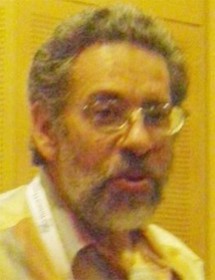Condom use during sex in the Caribbean remains unacceptably low in an environment where HIV transmissions are still high, epidemiologist Professor Peter Figueroa says, and he also points out that the sexual habit of multiple partners is fuelling the epidemic in many countries.

Some progress is visible across the region but prevalence remains high, according to Figueroa and he hesitated to name more than three countries that are turning things around with respect to prevalence (based on the available data); he cited Haiti, The Bahamas and the Dominican Republic.
It was during a meeting of regional stakeholders in Vienna at the AIDS 2010 conference on Wednesday night that Figueroa of Jamaica pointed to the problems in the region. What he identified as perhaps the most serious issue is the realization that a considerable amount of Caribbean heterosexual men have multiple sex transactions outside of an intimate relationship.
“…There are large groups who are in relationships and are also engaging in sexual acts with commercial sex workers and they are not using condoms. In addition, the region faces another challenge with homosexual men who are also engaging in sexual acts with women”, Figueroa noted.
The rate at which men have sex with men in the region is exceptionally high, Figueroa said, and he underscored that the issue emerges when homosexual men turn around and have sexual relations with women. He noted that Men who have sex with Men (MSM) are creating a bridge between the two sexual groups and fuelling the HIV/AIDS epidemic in the region, in addition to heterosexual men with multiple sex partners.
And the problems are compounded by the Commercial Sex Workers (CSW) who are conducting sexual transactions without condoms, Figueroa added. He said that generally condom use is minimal in the region. However, he emphasized that these issues must be addressed if the region is to gain on the progress made.
But there are other challenges. Figueroa pointed to the global map of HIV infections which was circulated in Vienna and which indicated that the Caribbean region only has 240,000 persons on register compared to other regions where the numbers are particularly high including China (700,000); Brazil (730,000); the Russian Federation (940,000); India (2.4M) Asia (4.7M) and Sub-Saharan Africa (22.4M) among others.
According to Figueroa, people have already started to whisper about cutting back on funding regional programmes in an effort to scale up funding in regions where the epidemic is raging. This, he said, could mean that the Caribbean region is currently benefiting from the final disbursements of funding from the Global Fund. “…This could be our last round which means that we have to make it go a far way”, he noted.
The region has to focus on sustaining its programmes and on getting value for money, Figueroa contended, adding that many stakeholders also need to be held accountable including the Pan Caribbean Partnership Against HIV/AIDS (PANCAP).
There is also need for regional agencies to collaborate deeper by sharing experiences, he added. Additionally, he said the region has to build capacity.
But more critically, he said political will has been lacking. He said the policy has to change in a more meaningful way and stressed that leaders have to take some courageous steps in the fight against HIV/AIDS.
Treatment and prevention
Figueroa asserted that the focus of the AIDS 2010 conference has been on treatment and prevention and according to him, the region is struggling in this area. He said around 50 percent of persons in the region who need treatment are not even aware that they need to be treated. This, he said, raises the question of new strategies and whether the region should start looking at routine testing for people who turn up at hospitals. “It is important that we identify everyone who needs to be on treatment and start treating them”, he pointed out.
Further, he noted that Caribbean people have to get over their hang-ups about discussing sex openly with young people because it is not helping the fight. He said also that young people need to be aware of the risks and that they must be armed with the information to make sound choices.
On the issue of openly discussing sex in the region, Ernest Massiah, Regional Director for UNAIDS agrees with Figueroa. He told Stabroek News during an interview in Vienna that the region still faces a problem of being able to speak candidly and clearly about sex, about sexual orientation and sexual behaviours, particularly with young people. He underscored that the region is struggling with providing access to treatment and prevention for those who are in need, in addition to the issue of new infections, more specifically, among young people.
Massiah believes that in the absence of these very critical conversations about sex, the Caribbean’s efforts to move ahead in the fight are being impeded. He said too that punitive laws within the region which criminalise certain aspects of sexual behaviour are also posing serious problems.
With respect to policy and political will, he declared that regional leaders have never lost interest in the health of their people. “I believe HIV/AIDS is critical to health and economic well-being of the Caribbean and I don’t believe leaders are losing faith…I think we have in the Caribbean a very amazing system coming up from the PANCAP mechanism but also too at the level of heads of government where there is a prime minister with responsibility for HIV/AIDS”, he noted.
According to Massiah, this type of coordination does not occur in many other regions and he called it an expression of a very mature and sophisticated political apparatus dedicated to addressing this issue.
Currently, he said the biggest challenge at this point in the Caribbean is that the prevention and treatment programmes are not getting to the population which is most at risk.




